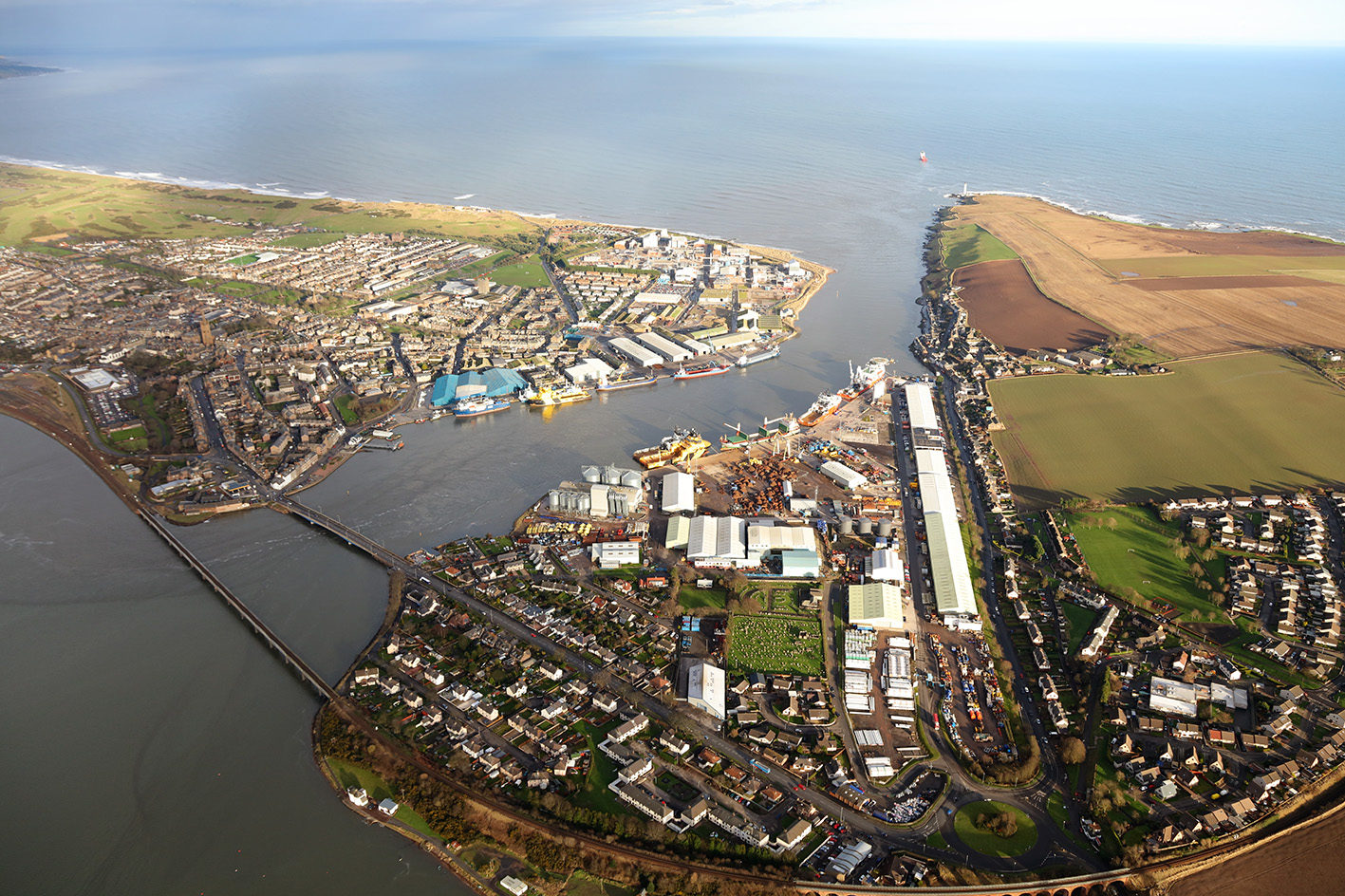Made possible by a grant from UK Research and Innovation’s (UKRI’s) Future Flight Challenge, Project MediDrone will soon run UK’s first proof of concept trial for the delivery of medical supplies, including COVID-19 test kits.
To be held at Montrose Port later this week, the first proof of concept trial introduces a partnership between London-based technology firm Neuron, drone-in-a-box provider HEROTECH8, and specialist insurance and risk management company, Flock. Together, the companies will fly a drone departing the quayside at Montrose and landing on a vessel offshore. The goal is to demonstrate how the safety and efficiency of ports can be improved using drones to reduce the number of trips to vessels by pilot boats, which can take hours to complete and are made dangerous by the crew having to climb a rope ladder from one vessel to another.
“This trial paves the way for widespread use of drones for ship to shore delivery,” Sam Golden, Head of Marketing at Flock, said. “We are showing how drones can improve safety, cut costs and increase efficiency in ports globally. I’m grateful to the UK government for supporting this trial and to Neuron for bringing together best in class companies to deliver on it. Great things can happen when companies are given the space to collaborate.”
Together with Herotech8’s automated recharging station and communication relay – which allows the drone to be operated remotely and on-demand by a pilot situated at their offices at Cranfield University – and Flock’s insurance, Neuron’s sensor agnostic Drone Surveillance Network will create a safer environment by providing pilots with a complete airspace picture. To achieve that, the network fuses data from multiple sources to enable a range of scalable BVLOS applications for drones including medical delivery, cargo delivery, linear infrastructure inspections and Urban Air Mobility (UAM).
“Drones offer a much safer, faster, and more cost-effective method of delivery compared with more traditional approaches,” Niall Greenwood, CEO at Neuron, added. “By connecting the drone to Neuron’s surveillance network, we have made a significant step to enabling these kinds of applications on a routine basis. The data from our networks provide the drone pilot with the ability to remotely observe nearby aircraft so that they can keep the drone safely separated from them.”
As one of the winning projects of last year’s UK government’s share of £7 million funding for ground-breaking aviation projects solving major global challenges, Project MediDrone aims to improve the delivery speed of critical medication, and limit human contact with supplies, therefore reducing the risk of transmitting COVID-19 to vulnerable patients. The project is currently focused on the development of a network of small drones following paths between medical facilities, acting as high-speed shuttles for small medical packages. If successful, this trial is one of the first steps for MediDrone to reach its goal, and could also see drones become a common sight at ports and over the sea.















Comments